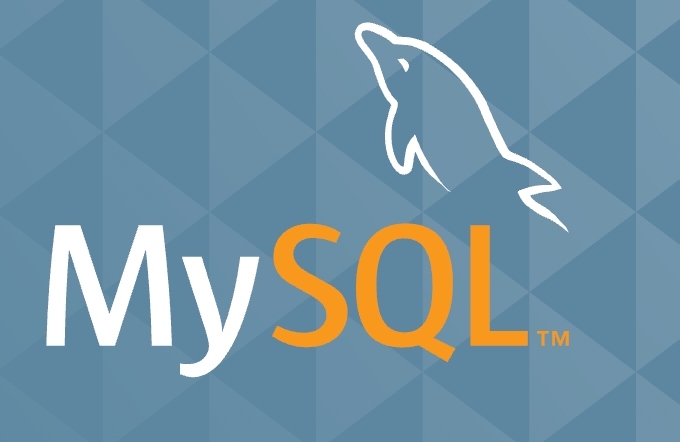Troubleshooting Common MySQL Connection Errors
Jul 05, 2025 am 01:24 AMWhen encountering MySQL connection problems, 1. First confirm whether the user name and password are correct, and check whether there are spelling errors or permission restrictions; 2. Make sure the MySQL service is running normally, restart the service and view the logs if necessary; 3. Verify that the network is unobstructed, ensure that the port is open and there is no firewall block; 4. Check the binding address, connection limit and SSL settings in the MySQL configuration file to ensure that the configuration allows external connections.

MySQL connection problems are common in development and operation and maintenance, especially when services are just deployed or databases are migrated. When you encounter a situation where you cannot connect to the database, don’t rush to check the log stack. Start by checking a few common points, which can often quickly locate problems.

1. Check whether the username and password are correct
This is one of the most common sources of errors. If you prompt Access denied for user 'xxx'@'yyy' when connecting MySQL, it means that the authentication failed.

- Confirm whether the username and password are spelled incorrectly (especially uppercase and uppercase and special characters)
- If configuration files or environment variables are used, check whether the values ??in these places are overwritten.
- If it is a remote connection, confirm whether the user has permission to connect from the current IP (see the
Hostfield in themysql.usertable)
Sometimes, even if the password is correct, a user does not authorize access to a specific database, a similar error will occur. You can check user permissions with the following command:
SHOW GRANTS FOR 'your_user'@'your_host';
2. Check whether MySQL is running normally
Sometimes the connection failure is not because of the account problem, but because the MySQL service has not started at all.

- Execute
systemctl status mysqlorservice mysql statusto view status - If it is not running, try restarting:
systemctl start mysql - Check if there is any error message in MySQL log (usually in
/var/log/mysql/error.logor similar path)
If you are connecting to MySQL on a remote server from locally, make sure that MySQL listens for the corresponding port (default 3306) and allows external access.
3. Check whether the network connection is open
When connecting to MySQL remotely, network problems are the second most common cause.
- Use
pingto test whether the server is reachable - Use
telnet your.mysql.server 3306ornc -zv your.mysql.server 3306to check whether the port is open - If there are firewall or security group rules, make sure port 3306 is open to your IP
Some cloud service providers only allow local connections by default, and require manual configuration of whitelists or security group policies.
4. Check if MySQL configuration restricts connections
MySQL itself can also control connection behavior through configuration files.
- Open
my.cnformy.iniand find out whetherbind-addressis bound to 127.0.0.1 - so that you can only connect locally - Check whether the
max_connectionssetting is too small, resulting in the new connection being rejected after the number of connections is full. - If SSL authentication connection is enabled, the client must also configure the corresponding SSL parameters.
In addition, if you use a connection pool (such as in Java or Node.js), be careful whether the connection pool settings are reasonable to avoid connection leakage or timeout.
Basically, these common connection problems and solutions. Although there are many error messages in MySQL, most of them can find clues from these aspects. What is not complicated but easy to ignore is the mutual influence between configuration items and network details, especially when accessing across servers.
The above is the detailed content of Troubleshooting Common MySQL Connection Errors. For more information, please follow other related articles on the PHP Chinese website!

Hot AI Tools

Undress AI Tool
Undress images for free

Undresser.AI Undress
AI-powered app for creating realistic nude photos

AI Clothes Remover
Online AI tool for removing clothes from photos.

Clothoff.io
AI clothes remover

Video Face Swap
Swap faces in any video effortlessly with our completely free AI face swap tool!

Hot Article

Hot Tools

Notepad++7.3.1
Easy-to-use and free code editor

SublimeText3 Chinese version
Chinese version, very easy to use

Zend Studio 13.0.1
Powerful PHP integrated development environment

Dreamweaver CS6
Visual web development tools

SublimeText3 Mac version
God-level code editing software (SublimeText3)

Hot Topics
 How to solve the problem of slow Mysql connection in Docker
Feb 19, 2024 pm 03:09 PM
How to solve the problem of slow Mysql connection in Docker
Feb 19, 2024 pm 03:09 PM
After using Docker to deploy MySQL, the connection speed is slow. Through online searches, I found that the problem may be caused by the lack of modules such as DNS resolution during the minimum container installation. Therefore, there will be a problem of super slow connection when connecting. We directly add this sentence skip-name-resolve and directly modify the docker-compose.yml configuration. The configuration is as follows version: "3" services: mysql: image: mysql: latestcontainer_name: mysql_composerestart: alwaysports:-3306:3306command:--default-a
 How to connect Navicat for MySQL to a local MySQL database - How to connect Navicat for MySQL to a local MySQL database
Mar 04, 2024 pm 07:30 PM
How to connect Navicat for MySQL to a local MySQL database - How to connect Navicat for MySQL to a local MySQL database
Mar 04, 2024 pm 07:30 PM
The article brought to you in this chapter is about the NavicatforMySQL software. Do you know how NavicatforMySQL connects to the local MySQL database? Then, the editor brings you the method of NavicatforMySQL to connect to the local MySQL database. Interested users can read below. Take a look. Open the computer where Navicatformysql has been installed, and then click the "Connect" option in the upper right corner. In the pop-up new connection window, you can enter the connection name and set the host name to the local database, so just use "localhost", Just leave the password blank. Then if the connection to the convenient database is successful,
 Analysis of the impact of MySQL connection number on database performance
Mar 16, 2024 am 10:09 AM
Analysis of the impact of MySQL connection number on database performance
Mar 16, 2024 am 10:09 AM
Analysis of the Impact of MySQL Connection Number on Database Performance With the continuous development of Internet applications, databases have become an important data storage and management tool to support application systems. In the database system, the number of connections is an important concept, which is directly related to the performance and stability of the database system. This article will start from the perspective of MySQL database, explore the impact of the number of connections on database performance, and analyze it through specific code examples. 1. What is the number of connections? The number of connections refers to the number of client connections supported by the database system at the same time. It can also be managed
 Optimizing the high concurrency performance of MySQL connections in Python programs
Jun 30, 2023 pm 12:27 PM
Optimizing the high concurrency performance of MySQL connections in Python programs
Jun 30, 2023 pm 12:27 PM
How to optimize the high concurrency performance of MySQL connections in a Python program? Abstract: MySQL is a relational database with powerful performance, but in the case of high concurrency, the connection and query operations of Python programs may affect the performance of the system. This article will introduce some optimization techniques to improve the performance of Python programs and MySQL databases. Use a connection pool: In high concurrency situations, frequently creating and closing database connections will consume a lot of system resources. Therefore, using connection pooling can effectively reduce
 How to test the high concurrency performance of MySQL connections on the command line?
Jun 30, 2023 pm 07:25 PM
How to test the high concurrency performance of MySQL connections on the command line?
Jun 30, 2023 pm 07:25 PM
How to test the high concurrency performance of MySQL connections from the command line? With the continuous popularization of Internet applications, the high concurrency performance of databases has become one of the focuses of many demands. As a popular open source database, MySQL has also received widespread attention for its high concurrency performance. Before testing the high concurrency performance of MySQL connections, we need to clarify some concepts and preparations: Concurrent connections: refers to multiple clients establishing connections with the database at the same time, and these connections perform database operations at the same time. Connection limit: MySQ
 In-depth understanding of the concept and importance of MySQL connection numbers
Mar 16, 2024 am 10:27 AM
In-depth understanding of the concept and importance of MySQL connection numbers
Mar 16, 2024 am 10:27 AM
As a commonly used relational database management system, MySQL is widely used in the field of Web development. When using MySQL, an important concept is the number of connections. This article will delve into the concept of MySQL connection numbers and their importance, and illustrate them with specific code examples. 1. The concept of MySQL connection number In MySQL, the number of connections refers to the number of clients connected to the MySQL server at the same time. When a client establishes a connection with the MySQL server, a number of connections will be occupied. My
 MySQL connection is reset, how to ensure the health of the connection pool through connection keepalive?
Jun 29, 2023 am 11:26 AM
MySQL connection is reset, how to ensure the health of the connection pool through connection keepalive?
Jun 29, 2023 am 11:26 AM
MySQL connection is reset, how to ensure the health of the connection pool through connection keepalive? When using the MySQL database, you often encounter situations where the connection is reset, causing the database connection to be interrupted, which is very unreliable for the application. In order to solve this problem, you can ensure the health of the connection pool by keeping the connection alive. Connection keep-alive means sending a specific query statement when the connection is idle to keep the connection active and prevent the connection from being actively closed by the server. This specific query statement can be a simple SE
 How to test the update performance of a MySQL connection from the command line?
Jun 29, 2023 am 08:36 AM
How to test the update performance of a MySQL connection from the command line?
Jun 29, 2023 am 08:36 AM
How to test the update performance of a MySQL connection from the command line? When performing performance testing of MySQL database, it is often necessary to test the connection and update performance of the database. This article will introduce how to use command line tools to perform update performance testing of MySQL connections. First, make sure you have installed MySQL and the MySQL command line tool. Step 1: Create a test database and table. Enter the following command on the command line to create a new test database and table: mysql-uroot-pCREATE






